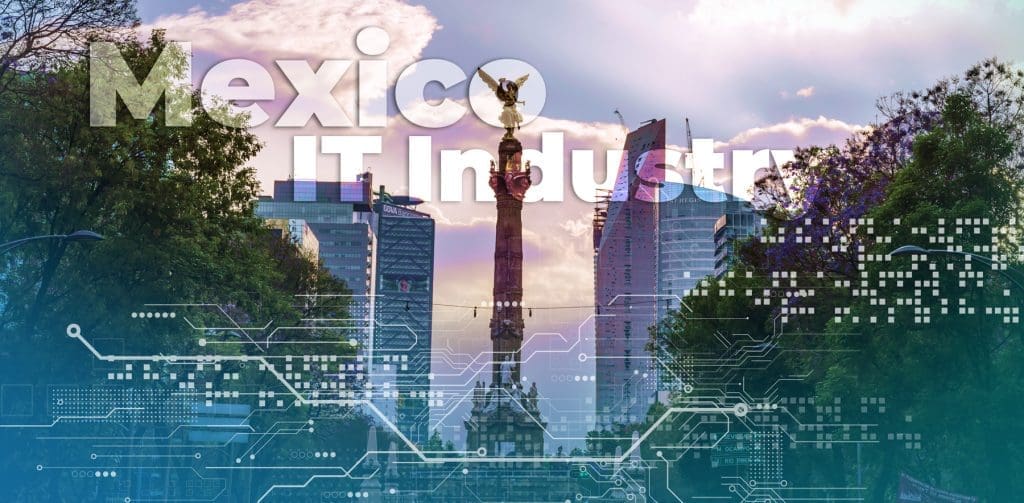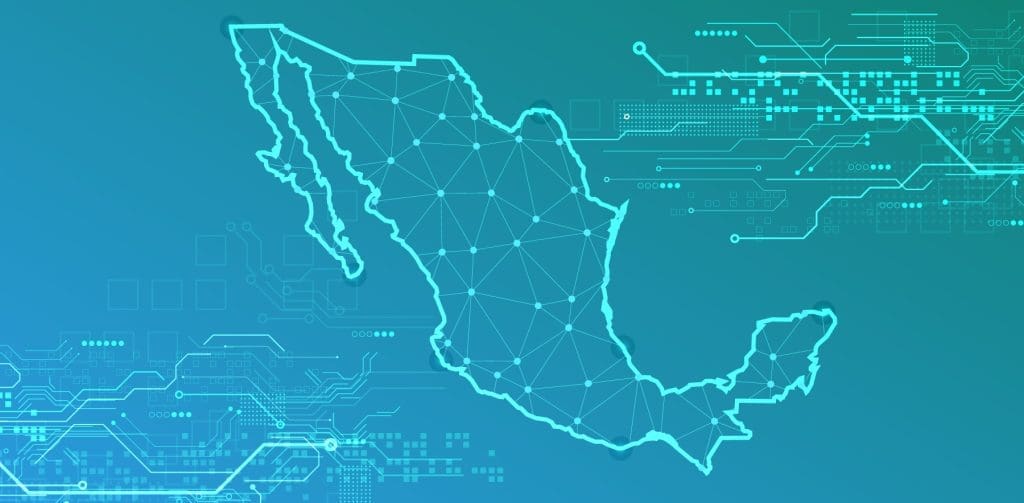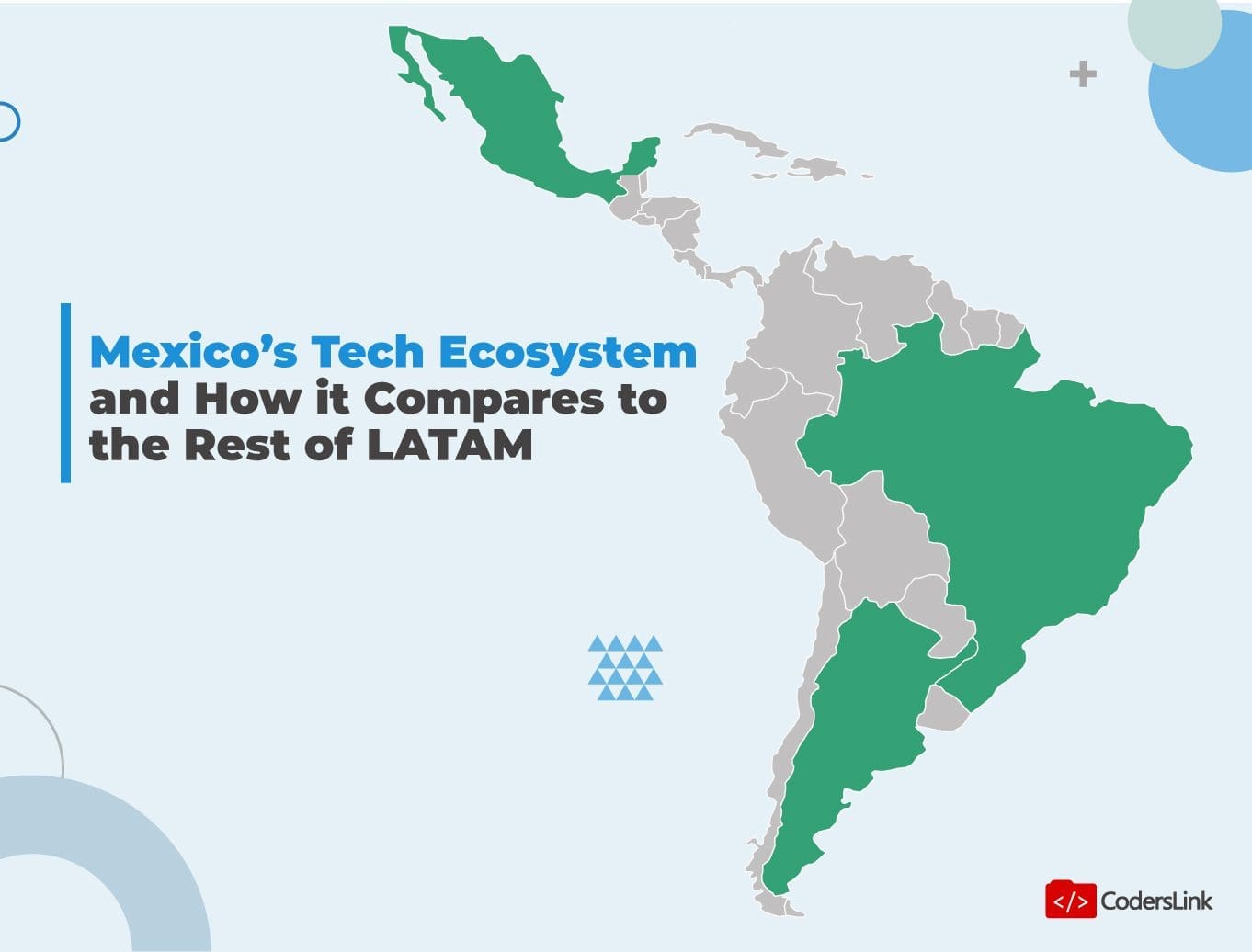Mexico’s IT Industry

The past decade has proved fruitful for Mexico’s IT industry. Thanks to increased investment and several educational initiatives and partnerships, the country has invested in fostering a growing talent pool trained in the latest technology. Due to increased demand for digital transformation and expansion, U.S. companies are picking up on Mexico as a worthy nearshoring destination to hire remote developers or open up satellite offices.
Noteworthy insights about the Mexico tech industry
Mexico has an increased emphasis on the STEM fields. Every year more than 130,000 students graduate with degrees in computer science or related fields.
The average IT salary for a semi-senior or senior developer or engineer in Mexico is $4,285.99 or $51,431.88 per year. In the U.S. a senior developer will earn a six-figure salary ranging from $115,000 to $190,000 per year.
The Mexico tech ecosystem has a diverse talent pool with IT professionals specializing in a variety of key areas. The most commonly found IT occupations in Mexico are full stack developer, back end developer, front end developer, software engineer, and data analyst.
Mexico trains its developers and engineers in today’s most in-demand languages and frameworks. The top programming languages in Mexico are Javascript, Java, Python, SQL, and C++.
The top frameworks used in the country include Bootstrap, ReactJS, Angular, and ASP.Net Core.
Mexico’s tech ecosystem is composed of highly educated and trained individuals. About 64.5% have a bachelor’s degree in their field and 51% possess some kind of technical certification.
Average IT Salary in Mexico
The average IT salary in Mexico varies by region, city, and experience level. The education level also plays a role in tech talent salaries. With a large cohort of upcoming junior developers, the average salary across the board stands at about $3,010.22. This average changes as we begin to separate average salaries based on education and experience.
That number may also vary depending on where a person is located, given that cost of living can vary significantly from one region of Mexico to another. Mexico City, for example, has a higher cost of living than Guadalajara.
Tech talent with a bachelors or masters degree averages a higher salary.
Even more so than education, companies value tech professionals with experience and training in real-world scenarios and companies. Many U.S. companies look for experienced and senior developers to jump into complicated development projects. In Mexico, a semi-senior developer is considered someone with 6-10 years of experience, a senior developer is someone with 11-15 years. Beyond 15 years of experience, IT professionals are considered experts. The average salary for a tech professional with 6-10 years is $3,371.83 and those with 11-15 years of experience average out at $4,285.
| Years of experience |
Average salary |
| 3-5 yrs |
$2,919.04 |
| 6-10 yrs |
$3,371.83 |
| 11-15 yrs |
$4,285.99 |
Why Mexico’s IT Industry is becoming an attractive nearshoring destiny for companies

The Mexico IT industry experienced considerable growth in the past few years. The race for digital transformation sped up during covid and has remained in third gear ever since. This high demand for technological solutions and digitization across all sectors has led companies to seek out talent in alternative and flourishing markets.
In the remote-first world, companies are empowered to leverage the benefits of global talent and build a diverse team. Companies of all sizes can now access specialized talent around the world and fill roles that they had previously struggled to fill.
Mexico is a popular nearshoring destination because of its accessible and diverse tech talent pool. Mexico has a high concentration of Full stack developers, back end developers, front end developers, data analysts, and software engineers.
What other advantages does Mexico have over other outsourcing destinations?
Proximity
Most locations in Mexico are a short flight distance from the U.S. There are hundreds of daily flights that leave from major metropolitan areas in the U.S. that reach places like Mexico City or Guadalajara.
Overlapping time zones
Team collaboration and cohesion is a major part of remote work. Vastly different time zones can be an impediment to that. Mexico shares a maximum of a 2-hour difference with U.S. time zones.
Trade agreements and IP protections
The United States-Mexico-Canada Agreement (formerly NAFTA) governs trade within North America and puts certain protections and established regulations in place that make cross-cultural business easier and safer.
Similar culture
Given the proximity and connections, Mexico and the U.S. share a lot of cultural similarities particularly when it comes to work ethic, workplace hierarchies, and a strong emphasis on individuality.
High levels of English proficiency
Mexican talent is highly trained in English. Our 2023 survey showed that 14.5% of tech professionals are fully bilingual, 32.9% have an advanced English level, and 36.5% have intermediate proficiency.
Diverse talent pool
The Mexican talent pool has a wide range of professionals occupying a variety of roles throughout the tech sector. The most common roles seen in Mexico include full stack developer, back end developer, front end developers, software engineer, and data analyst. However, companies can also recruit other roles like engineering manager, product manager, cyber security specialist and more.
Increasing number of experienced developers
As Mexico’s IT industry grows, the labor force is saturated with technology professionals with more years and experience under their belts. The 2023 survey revealed that about half of Mexico’s working developers have six years or more of experience. About 11% of those have more than 15 years, 14.8% have 11-15 years, and 24.5% have 6-10 years.
Mexico’s tech industry: bringing business closer to home
In recent years, supply chain disruptions, geopolitical conditions, and international tensions have made companies more hesitant to send their business to places like China. Even previous outsourcing destinations like India have fallen out of favor because of complications with distance, time zones, and culture clashes.
Companies see the benefit of having their operations, satellite offices, and remote workers at a short flight’s reach and sharing a common culture.













